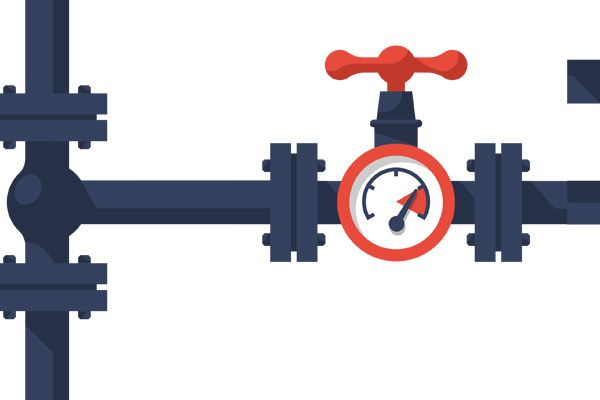Health and care systems have competing pressures and expectations from a wide range of people (including patients, carers, clinicians) and each of them often have competing priorities. Patients should be the centre of the healthcare system, they are best placed to understand what they want and what they expect. However they may not know what they need. In a system with finite resources patients are unlikely to understand (or have visibility of) what their need is competing against. In this situation it quickly leads to prioritisation of patients percieved needs against availble resources and mismatched expectations leading to frustrated patients.
Of course patients are not the only ones with needs and expectations. Healthcare staff have expectations on how the health and care should be provided and how they wish to be able to meet patients expectations. Likewise commissioners and public bodies have expectations and aspirations for the healthcare system. This multi-faceted competition of needs, wants and expectations means there are frustrations at multiple levels that can fester and grow.
The NHS is attempting to channel some of this frustration through initiatives aiming to support those in the NHS to be entrepreneurial.
in the NHS this group includes clinicians, healthcare professionals, patients and carers who know the pathways, people, struggles, medications and technologies. If supported they have the knowledge and skills to develop innovations that address real unmet needs in the NHS to improve patient care, public health and workflows. The NHS has, until recently, not actively supported clinicians and healthcare professionals to have the time or skills to lead changes in an fresh, innovative or entrepreneurial way. It is likely that this has been slowing the development of new approaches in the NHS that work for the NHS and address real unmet needs, frustrations and pressures.
However clinicians are frustrated by systems within the health and care setting and are finding low-tech ways of circumventing these frustrations to try improve care and meet patient expectations.
my best way of communicating with my secondary care colleagues is to ask my patient to take a photograph of the consultants notes and bring it to my surgery
There are also initiatives (e.g. NHS Hack Day and Hacking Health) which support co-creation and co-development of innovative solutions that can address needs within a healthcare system. Initiatives like these help to release the bottled up frustrations by channeling them into constructive developments.
Sat on a fence, but it don't work.
Improvements and new innovations in health and care systems are perceived to be slow, particularly by those unfamiliar with the processes required to ensure changes are acceptably low risk. But it also begs the question: how quick is quick enough? The impacts of slow change are keenly felt by patients who want and expect better and opportunities for patients, carers and public to engage and contribute to improving health and care are limited. NHS Hackday is one of a only small number of initiatives that engage with anyone to contribute to improvements and alongside NHS entrepreneurial initiatives vent frustrations but have limited capacity. As a result we are seeing a growing number of empowered patients, carers and public who are sharing knowledge and expertise to hack existing systems and processes. These individuals set out to create new tools that improve healthcare provision in a way that addresses their frustrations. Recently there have been several reports of patients getting frustrated and taking the initiative. For example, one person created an app that helped track his blood pressure which in turn has enabled him to understand what was triggering his hypertension. This is an example of a simple tool that an informed member of the public can create that can help them better understand their wellbeing.
However there are also loopers, who hacked old insulin pumps with their own algorithm that automatically calculates insulin doses based on real-time glucose data. This contributed to the grassroots #WeAreNotWaiting movement - Type 1 diabetes patients and carers that have become frustrated with diabetes management systems. They are crowdsourcing expertise and as a result have developed homemade approaches to linking disconnected systems, creating their own devices and even developing artificial pancreases. This patient and carer led movement created a hacked artificial pancreas in 2014, two years later Medtronic released their first FDA approved artificial pancreas and a further two years later the first person in the UK recieved an artificial pancreas (outside of clinical trials).
These types of movements can polarise opinion horrifying those that feel there are insufficient safety measures in place and inspiring those that are frustrated with the limitations and pace in the health system.
Change our way of caring about ourselves
Healthcare systems and commercial providers are not meeting the expectations of patients. The expectations may be perfectly reasonable or unreasonable or ill-informed but as a result of the frustrations patients are taking matters into their own hands. Frustrations are shared by patients and healthcare staff. It’s clear that patients and healthcare professionals have amazing expertise and enthusiasm to contribute to improving healthcare provision. The question remains how can this enthusiasm and energy be supported in a way that has manageable risk?
At this point in time where health and care systems are struggling to meet demands and governments continue to be paralysed there is potential for frustrations of patients and staff to increase. When frustrations increase the pressure will be released we need to consider how this is better facilitated in a way that has acceptable and transparent risks and rapidly moves the quality of care and evidence forward.
Enjoyed this post? Get in touch Twitter or LinkedIn to share your thoughts!
You may also be interested in reading...





